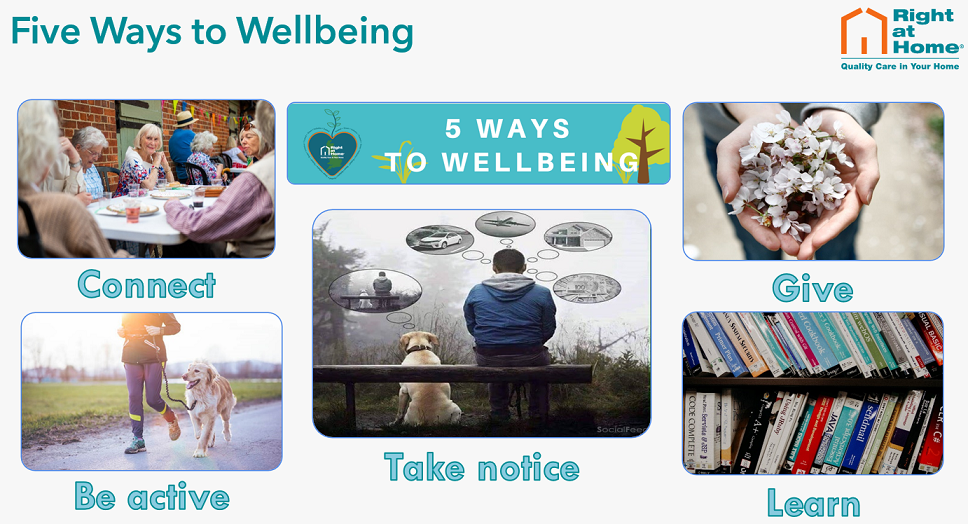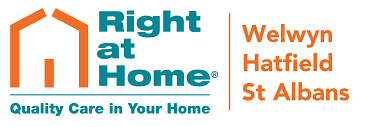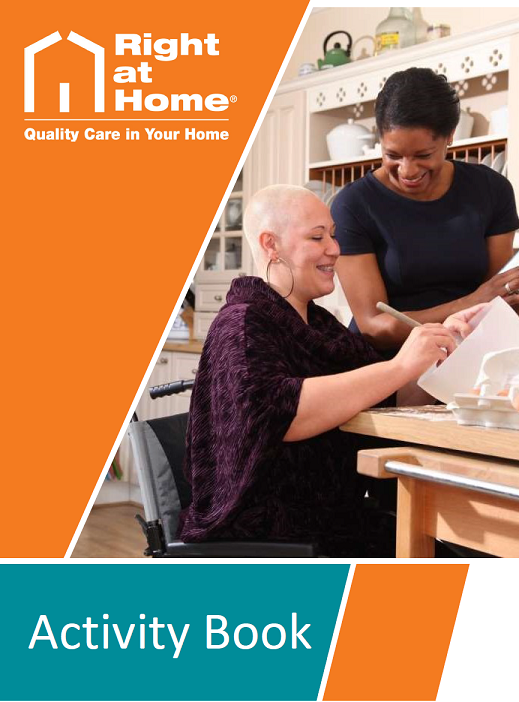Health & Wellbeing

Connect… There is strong evidence that indicates that feeling close to, and valued by, other people is a fundamental human need and one that contributes to functioning well in the world. With this in mind, try to connect with people, Building these connections will support and enrich you every day. Maybe pick up the phone instead of sending an email, ask how someone’s weekend was and really listen to what they say, putting a few minutes aside to connect with colleagues, neighbours, family or friends.
Build strong connections with others, Develop comfort with asking for help, Take appropriate tasks, Support others through difficult times – we need to give our employees the opportunity to be heard
Be active… Regular physical activity is associated with lower rates of depression and anxiety across all age groups but it doesn’t need to be particularly intense for you to feel good - slower-paced activities, such as walking, can have the benefit of encouraging social interactions as well providing some level of exercise.
Some ideas might include, taking the stairs not the lift, getting off the bus a stop early, walking to someone’s desk instead of emailing! Go for a walk or run. Step outside. Cycle. Play a game. Go in the garden. Dance. Most importantly, discover a physical activity you enjoy and that suits your level of mobility and fitness.
Take notice… Studies have shown that being aware of what is taking place in the present directly enhances your well-being and savouring ‘the moment’ can help to reaffirm your life priorities. Take some time to enjoy the moment and the environment around you. Here are a few ideas: Be curious. Catch sight of the beautiful. Remark on the unusual. Notice the changing seasons. Savour the moment, whether you are walking to work, eating lunch or talking to friends. Be aware of the world around you and what you are feeling. Reflecting on your experiences will help you appreciate what matters to you.
Keep learning… Continued learning through life enhances self-esteem and encourages social interaction and a more active life. The practice of setting goals, which is related to adult learning in particular, has been strongly associated with higher levels of wellbeing. Try something new. Rediscover an old interest, Set a challenge you will enjoy achieving, find out something about a colleague, sign up for a class, read a book, research something you’ve always wondered about. Learn a new word.
Give… Participation in social and community life has attracted a lot of attention in the field of wellbeing research. Individuals who report a greater interest in helping others are more likely to rate themselves as happy. Research into actions for promoting happiness has shown that committing an act of kindness once a week over a six-week period is associated with an increase in wellbeing. Do something nice for a friend, or a stranger. Thank someone. Smile. Volunteer your time. Join a community group. Look out, as well as in. Seeing yourself, and your happiness, linked to the wider community can be incredibly rewarding and creates connections with the people around you.

Other ways to relieve stress
•Taking more exercise or going for a walk
•Taking time out for yourself, engaging in relaxing activities whilst away from work
•Doing something that you enjoy
•Taking a deep breath / Counting down slowly in your head
•Removing yourself from a situation and taking time out
•talking through how you feel with your line manager or a councillor
•attending any stress management courses or workshops available
•looking at your diet and substance intake, for example caffeine, and managing a sensible intake
•undertaking self-awareness activities
NHS - Better Health
every mind matters
Find your little big thing for your mental health
There are little things we can all do to lift our mood or ease our anxiety – we need to find what works for us.
This could be as simple as taking a walk in nature, prioritising your sleep or opening up to a friend. Your little thing, if you keep doing it, will make a big difference to how you feel.
https://www.nhs.uk/every-mind-matters/

